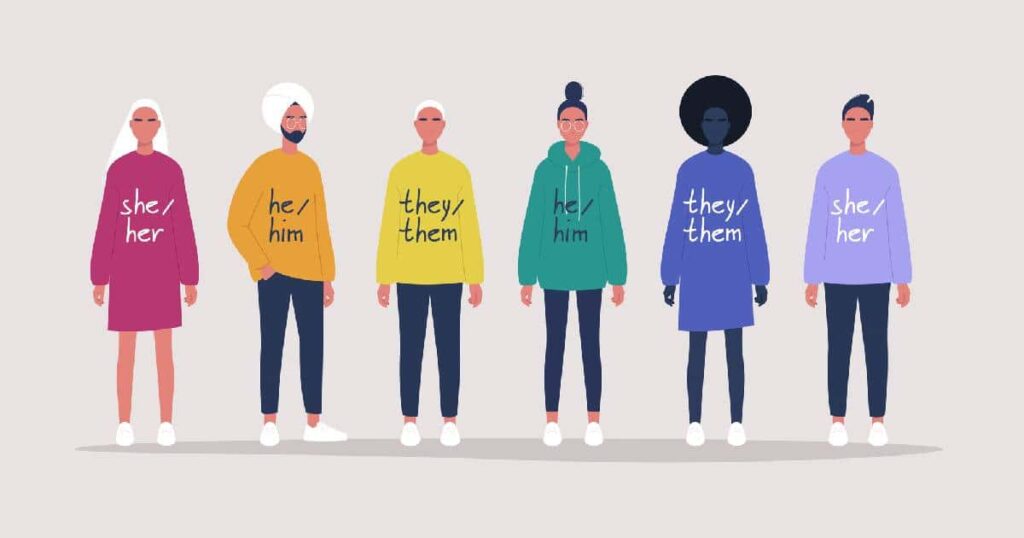What Schools Need to Know: New Gender Guidance
Gender identity in schools has become an increasingly important topic in recent years. With growing awareness and acceptance of transgender and gender non-conforming identities, many schools have struggled with how best to support gender questioning and transgender students. Bullying and exclusion remain common problems, often leading to poor mental health outcomes.
To address this, the UK government recently released new draft guidance for schools on better supporting transgender and gender questioning children and adolescents. This follows earlier initiatives aimed at fostering inclusive school cultures, such as adding LGBT content to the sex education curriculum.
The new guidance provides practical recommendations on topics like chosen names and pronouns, uniform policies, combating bullying, and working with families and healthcare providers. It aims to help schools create environments where students of all gender identities feel safe, included, and able to thrive as their authentic selves.
With transgender rights remaining a contentious issue in public discourse, the guidance represents an important step toward equity and understanding. Here is an overview of some of the key topics covered by the guidance as schools seek to support gender-diverse students.

Does it Make Me Gay, Lesbian or Bisexual?
Gender identity and sexual orientation are often conflated but they are distinct parts of one’s identity. Questioning your gender does not necessarily define your sexual orientation. Gender identity refers to your inner sense of self as male, female, both or neither. Sexual orientation refers to who you are attracted to romantically and sexually.
For transgender and questioning youth, understanding this difference is important. Some transgender individuals identify as gay, lesbian or bisexual. However, many identify as straight, meaning they are attracted to the opposite gender they identify as.
Schools must allow young people to explore their gender identity and sexual orientation without judgment or assumptions. Creating safe spaces, providing accurate information, and connecting students with role models can empower them to embrace their identity. The guidance recognizes exploring gender and sexuality should be met with support.
How Does Gender Discomfort Affect You?
For some young people, there is a profound sense of emotional distress, anxiety, or dysphoria because their inner sense of their gender identity feels incongruent with the sex they were assigned at birth. This discord can deeply impact mental health and overall wellbeing if not addressed sensitively.
Transgender and questioning youth are at much higher risk for depression, self-harm, and suicide if they do not feel accepted and supported. That’s why taking steps to create a more affirming and understanding school environment is so crucial.
Small but meaningful changes like using a student’s chosen name and pronouns consistently in class and school systems, even if different from legal documentation, can make a big difference. Strict uniform policies should be evaluated to be more flexible and not exclude students who are transitioning.

Ensuring any bullying or harassment based on gender identity is quickly addressed and dealt with through proper channels is also vital to prevent trauma. Ongoing education for all students and staff can help promote acceptance and allyship.
Access to qualified counsellors aware of gender identity issues provides invaluable support to students who are questioning or transitioning. Having someone empathetic to speak to freely and privately enables them to process emotions and feel heard. A designated point person on staff for gender diversity issues can also help students navigate challenges. With basic understanding and an affirming community, schools can foster a culture where transgender and questioning youth feel safe, included, and empowered to focus on simply being themselves.

What Does It Mean For A Child Who Asks To Socially Transition At School?
Social transitioning within a school or college refers to openly changing outward facing social aspects to better align with a child or adolescent’s internal gender identity. This can include elements like their name, pronouns, hairstyle, or clothing.
The new draft guidance emphasizes that schools should respect a student’s request to socially transition at school and establish open communication on how to proceed together sensitively. Transgender students have the right to live authentically in spaces vital for their self-concept, growth, and wellbeing.
Schools play a pivotal role during social transitioning through actions such as updating school records and ID cards with affirmed names and genders, creating transgender policies for sports and activities, and ensuring staff and students use the correct pronouns and names. Respecting this deeply personal decision can relieve gender dysphoria and enable students to gain confidence.
However, the guidance also underscores that willingness or ability to socially transition should NEVER be a prerequisite for schools providing necessary support to questioning and transgender students. Each child’s identity exploration journey is unique. Working closely with families and healthcare teams is encouraged to ensure an empathetic, tailored approach focused on the student’s overall health and participation first and foremost. With care, compassion, and courage, schools can foster true belonging.

Who Can Help Me?
The guidance emphasizes the importance of working with healthcare professionals. Staff should listen without judgment and involve parents/guardians as early as possible. Schools should also designate a staff member to discuss gender identity issues and ensure the whole school understands their duty of care.
Update Your Establishment, Group and Governance Information
In their 2023 guidelines, the UK government stresses the need for inclusive school cultures that support transgender and questioning students. Key actions for schools include:
- Updating bullying and equality policies to explicitly mention gender identity.
- Ensuring staff use chosen names and pronouns consistently.
- Working closely with families and healthcare providers.
- Designating a staff member to discuss gender identity issues.
- Reviewing uniform rules to be flexible and not exclude students.
The guidance aims to create schools where every student, regardless of gender identity, feels safe, included and empowered to be themselves. While further progress is still required, these recommendations represent an important step.
Have Your Say:
The guidance sets out recommendations for schools on topics like uniform policies, names/pronouns, working with families and healthcare providers. It covers areas such as:
- Bullying and equality policies
- Staff training
- Social transitioning
- Designating a lead staff member
- Working with NHS gender identity services
The government emphasizes this guidance aims to foster school cultures where all students feel safe, empowered and included – regardless of gender identity.
The draft is currently open for public consultation until February 20th, 2023. The Department for Education welcomes feedback from students, parents, schools, healthcare providers and all other stakeholders.
To review the draft guidance and submit official feedback, visit: Consultation Website
The public consultation allows diverse perspectives to be heard so final guidance can be shaped collaboratively. The government states recommendations should balance rights, privacy, health and practical support sensitively. This draft and consultation period represents an important milestone in ensuring gender diverse students feel understood, respected and empowered in UK schools. The government seeks input from all interested parties.
For more resources:
Here are some recommended online resources on supporting transgender and gender questioning students in schools:
For Students:
- Mermaids UK: https://mermaidsuk.org.uk/ – Charity supporting transgender and gender diverse youth. Has helplines, web chat, networking events and resources.
- Gendered Intelligence: https://genderedintelligence.co.uk/ – Resources, workshops and support for trans youth to embrace their gender identity.
For Parents:
- Stonewall: https://www.stonewall.org.uk/ – Advice and glossary of terminology for parents of trans kids.
- TransParent: https://transparentnz.org/ – Parent online community and resources for family/whānau of trans youth.
For Educators:
- Barnardos LGBTQ+ Inclusive Schools Programme: https://www.barnardos.org.uk/what-we-do/our-work/lgbtq-inclusive-schools-programme – Training, advice and lesson plans for schools on LGBTQ+ inclusion
- Proud Trust: https://www.theproudtrust.org/ – Delivers staff training workshops on supporting LGBTQ+ students.
- Government Guidance: https://www.gov.uk/guidance/supporting-transgender-pupils-in-schools – Practical advice for implementing gender identity inclusive policies.
Don’t forget to check out our ‘After The Bell’ podcast, which you can listen to on a weekly basis on Spotify or Apple Podcasts.
If you would like any more information, please do not hesitate to contact us by email at info@connex-academy.com or call 01253 543 660.




